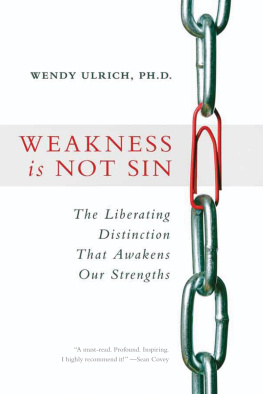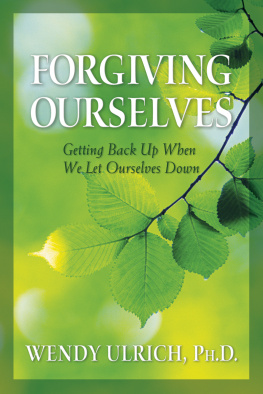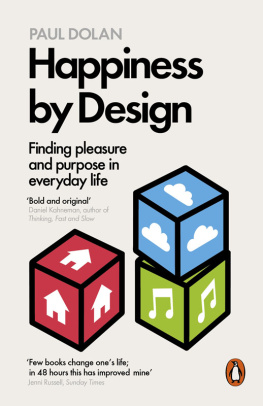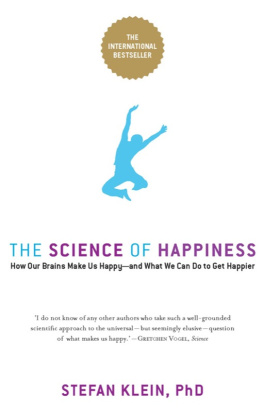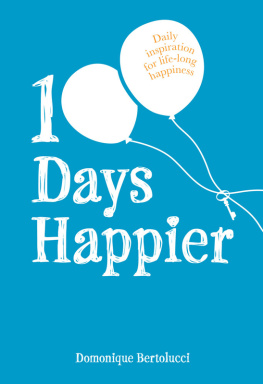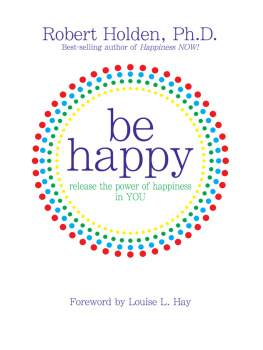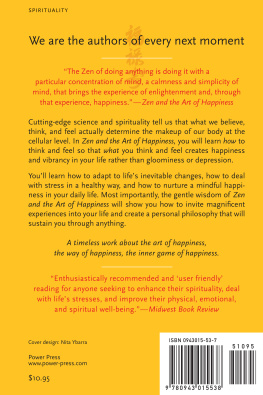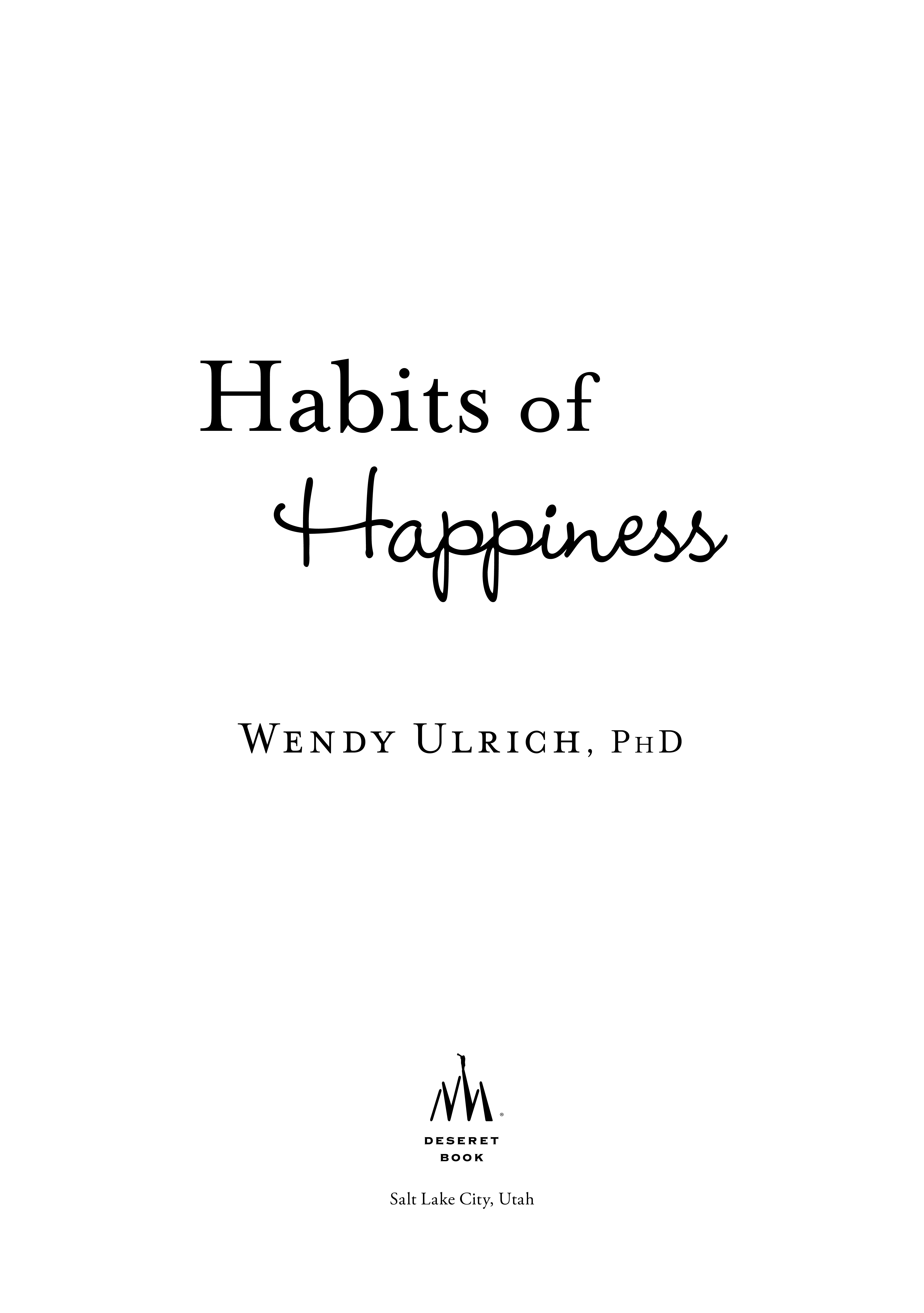2013 Wendy Ulrich.
All rights reserved. No part of this book may be reproduced in any form or by any means without permission in writing from the publisher, Deseret Book Company (permissions@deseretbook.com), P.O. Box 30178, Salt Lake City Utah 84130. This work is not an official publication of The Church of Jesus Christ of Latter-day Saints. The views expressed herein are the responsibility of the author and do not necessarily represent the position of the Church or of Deseret Book. Deseret Book is a registered trademark of Deseret Book Company.
Library of Congress Cataloging-in-Publication Data
Ulrich, Wendy, author.
Habits of happiness / Wendy Ulrich.
pages cm
Includes bibliographical references.
ISBN 978-1-60907-817-1 (hardbound : alk. paper)
1. HappinessReligious aspectsThe Church of Jesus Christ of Latter-day Saints. 2. Christian lifeMormon authors. I. Title.
BX8643.H35U47 2014
248.4'89332dc232013039287
Printed in the United States of America
R. R. Donnelley, Crawfordsville, IN
10 9 8 7 6 5 4 3 2 1
For my beautiful grandchildren
Habits of Happiness

Being Happy
Happiness is the outcome divinely designed into the fabric of our very existence. It is what God intends for us. His plan for our salvation is often referred to as the great plan of happiness (Alma 42:8). But we dont get happiness by just deciding to be happy. We dont even get happiness by pursuing it directly. Happiness results when we get on the right patha path of living in accordance with our highest ideals.
Recent research in the field of psychology supports the importance of living our values if we want happiness and well-being. Over most of its existence as a discipline, psychology primarily pursued the goal of helping people healhelping people get back to neutral, if you willwhen their paths had begun in painful, negative places. Then a decade or so ago a psychologist named Martin Seligman got together with some of his psychologist friends and proposed a new field of inquiry for the field of psychology: not just how people get from mental illness to neutral or zero, but how people get from zero to positive. How do people thrive, not merely survive? How do they become resilient, resourceful, and happy? Seligman got a jump-start on his project when an anonymous donor offered him $20 million to pursue his research because the donor felt so strongly about Seligmans goals. Thats a happy way to start a research agenda.
When Seligman began to look at what helps people to be happy, he was quickly joined by other researchers interested in what actually helps people flourish and make a difference for good in the world. They realized that happiness is not just a feeling we happen upon, but a skill set we can develop. The feeling of Im so happy! may come and go, but the sense of having overall happiness in our lives can increase when we get on the right path. Some interesting ideas have come out of that research, many of which are consistent with the gospel of Jesus Christ, although it may not look that way right off the bat. Lets look at some habits of happiness, most of which come out of the extensive research of Seligman and his colleagues. They are:
1. Stop worrying about your weaknesses.
2. Dont even try to get motivated to exercise.
3. Stop hoping to find friends.
4. Dont try to feel happier.
5. Celebrate failure.
6. Dont try to get help with your problems.
7. Dont endure to the end.
Now, maybe you read that list and think, Somebody just wasted $20 million. Or maybe you think, If Wendy can get away with promoting a list like that at Deseret Book, then this is the church for me! Before you get too excited either way, lets take a closer look at this counterintuitive list of some of the habits of happiness.

1. Don't Worry About Your Weaknesses
With all the emphasis in the scriptures on repentance, worrying about our weaknesses has almost become a national pastime for good Christian folk and Latter-day Saints in particular. One of the first things Seligman figured out was that we dont necessarily get happier by trying to fix whats wrong with us. Fixing whats wrong gets us to neutral, to being less miserable and having more options. But we are more likely to get to the positive side, to happiness, by pursuing our strengths. So this first habit should really be titled: Put most of your energy into contributing to the world from your strengths, not into overcoming your weaknesses.
Thats kind of an interesting lesson for those of us who spend a lot of time thinking about whats wrong with us. Trying to get better at what were lousy at is still a good thing to do, of course, especially when it includes repenting of genuine sin. But its not necessarily what makes for happiness in the day-to-day living of our lives. We are more likely to be happy when we develop and live from our strengths, put our highest values into action, and do what we love.
Its not too hard for me to imagine that the Lord is pleased when we focus on contributing to the world from our strengths rather than get bogged down in a self-focused preoccupation with our weaknesses. I decided a few months ago to review my patriarchal blessing, wanting to better understand what the Lord wants me to be doing with my life. Just for fun, I decided to make a list of what things He told me were potential strengths and what things He told me were potential weaknesses. It was quite interesting to make those lists. I assumed going in, although I wasnt really conscious of it, that the weaknesses list would be quite long. I thought I would find a lot of warnings and things I really needed to buck up and fixand I assumed that if I could figure out what was wrong with me and fix it, Id feel better. But I actually found only about five instances of that kind of thing, and some of those I had to stretch to include. (For example, my blessing said something about me being humble, and I thought maybe that was an indirect way of telling me to be careful about pride, so I put pride on the weaknesses list.)
In contrast, I found more than forty things in this little one-page document about my gifts, my opportunities, and my strengths. I dont think Im unusual here. You might review your patriarchal blessing with a similar purpose. There seems to be something foundational about the importance of working on our strengths as a guide to life.
I learned something about this principle when my husband and I served a mission a few years ago in Quebec, Canada. I served a mission when I was younger as well, and I had some regrets about not having been the best missionary possible on that first mission. I hadnt done anything horrible, but I wasnt perfect at living all the rules and I wasnt always very enthusiastic about every single aspect of missionary work. So when we went on this new mission, I was determined to overcome those early deficits. I made a list of things I needed to work on, and it was a very, very long list. For openers, I am just not a natural missionary by any stretch of the imagination, and talking to strangers about the gospel is really hard for me, as I know it is for many. I practiced and I tried and I worked, but I wasnt very successful and I wasnt very happy. In addition, I felt like a terrible hypocrite because I was supposed to be an example and even a trainer for the younger missionaries in how to effectively share the gospel, be more in tune with the Spirit, and obey mission rules. Some of those things came naturally to me, but some absolutely did not. In fact, it felt like the harder I tried at some things, the more miserable I became.


